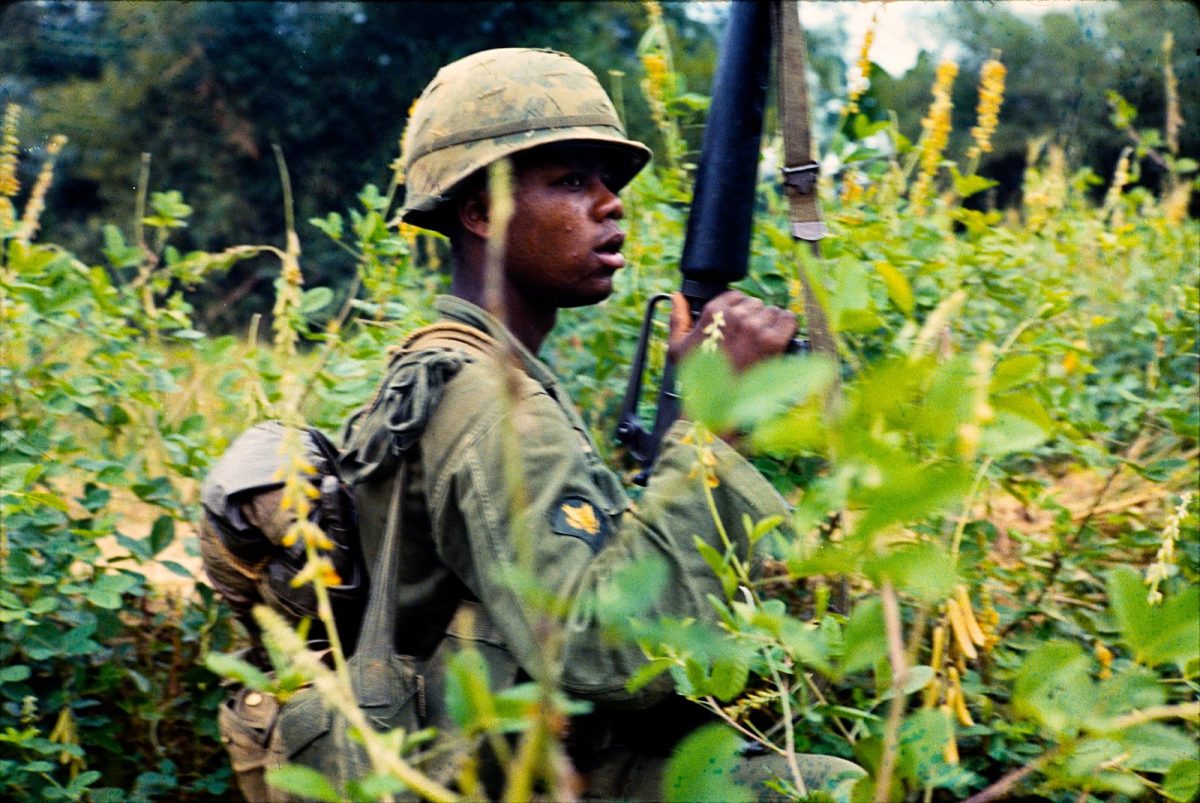My Papa is someone whom you would recognize right away if you vaguely knew what he looked like. He is a tall and lanky man who always has thick frames positioned high on his nose. Often, a silly grin is plastered across his face. He says the most spontaneous things, which I see as an innate quality I inherited from him. My Papa is the only son to his parents, but did not let this stop him from enlisting in the military. He left for Vietnam as a fresh 18-year-old kid. I cannot imagine what that was like for him, especially as someone upon whom his family depended. His duty to his country, his community, and himself is what brought him to enlist. Many men, particularly Black men, felt a similar sense of responsibility during this time. I come from a long line of military men — my Papa in the Vietnam War, his son (my father) in the Gulf War, and various uncles and cousins who were active or continue to be.
Upon reflection of his time in the service, my Papa frequently reminisces about the beautiful places he saw, the interesting comrades he met (he keeps in contact with the ones that are still alive), and the mischief he got up to. One particular moment I recall him sharing is his 21st birthday. My Papa has rarely ever put “poison” into his body, but this was a day of celebration and one that warranted his first real taste of alcohol. Upon the ample encouragement of his comrades, he drank so much that it was the most he had ever consumed at any point in his life. He woke up the next morning not knowing how he had even gotten to the barracks. In moments like this, when he shares his silliest memories, I sometimes think about the bad ones he must have. The haunting image of a photograph taken in Vietnam is something that has repeatedly lingered in my mind from time to time. It shows an African American soldier fixated on an engraved stone message. It reads: “U.S. NEGRO ARMYMEN, YOU ARE COMMITTING THE SAME IGNOMINIOUS CRIMES IN SOUTH VIETNAM THAT THE KKK CLIQUE IS PERPETUATING AGAINST YOUR FAMILY AT HOME.”
I remember one memory my Papa shared of a harrowing encounter, but this was after serving in the war. He had just arrived back in the States and came off of a bus that brought him to a small town somewhere down South. Fitted in his uniform and holding his duffle bag, he approached a small white girl in order to ask for directions. She merely looked up at him without saying a word. Then he made his way through the front door of a nearby general store. The clerk refused to give him directions, informing him that “colored folk” had to come through the back. My Papa shared this story without his usual grin and cheeky tone. A stoic expression engulfed his face and he ceased rocking in his chair.
I know that many Black soldiers have similar stories about returning home. Much of the sentiment at the time, sometimes even from the Black community, was that the war was a complete failure. I largely attribute good ole’ Southern racism to my Papa’s horrible encounter, but many Black men had not returned to open arms. Instead, they were told by a great deal of society that they had disappointed their country. I have read about some of the worst experiences imaginable for Black soldiers in Vietnam. They were overwhelmingly stationed on the front lines, given menial tasks, improperly trained, and poorly equipped. Oftentimes, their white “comrades” were not there to aid them but to assert authority. We see other manifestations of racism through accounts of crosses burning and confederate flags flying high among encampments. The sheer volume of Black men into Vietnam compared to any other group demonstrates just how much the U.S. perceived them as merely disposable Black bodies. Many white soldiers, deployed from all across the country and particularly the deep South, carried their racism overseas.
I remember how my Papa, after a long pause from sharing that disgusting memory of coming home, said that things have not changed very much. It is almost as if there was not already a war happening back home. This war continues to rage on.



